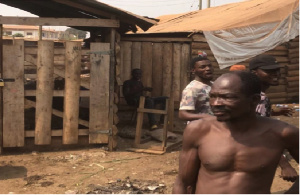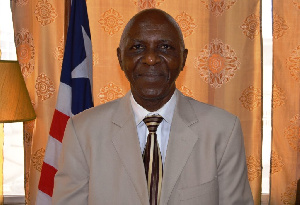CCF’s monitoring identify issues affecting vagrants

Vagrancy laws are various legal statutes and bye-laws of local governments that tend to disproportionately affect the homeless and other voiceless citizens because of their destitution.
Under these laws, vagrants are often imprisoned when they are unable to pay the fines imposed on them.
The laws disrupt the economic and social lives of vagrants who include poor persons such as truck pushers, street hawkers, market women, head porters, and commercial drivers because of their economic vulnerability.
The CMT carried out monitoring activities within Ejisu, Suame, Asokore Mampong, and Kwadaso Municipalities from 26th to 29th January 2022.
The activities formed part of the implementation of the Foundation’s “Decriminalizing Vagrancy Laws and Advocacy” project which is supported by the Open Society Initiative for West Africa (OSIWA).
The main objective of the project is ‘to create ‘an enabling environment for ‘vagrants to know, claim and exercise their rights to end the criminaliSation of homelessness in Ghana’.
To monitor, identify and report effects of vagrancy laws after engagements with relevant local authorities and Justice Sector Institutions, the CMT interacted with vagrants on the streets, lorry parks, and market centres within the aforementioned municipalities.
Key issues identified include frequent unjustified police swoops on vagrants, harassment, and fines imposed by various Metropolitan, Municipal and District Assemblies (MMDAs).
Vagrants suffered the loss of business capitals, places of abodes, and blocked economic opportunities capable of lifting them out of their present predicament.
Their condition worsens when they are handicapped in taking care of their children and themselves and their inability to access proper medical care.
About the CCF-OSIWA Project:
The “Decriminalizing Vagrancy Laws and Advocacy project is being implemented in twelve (12) Metropolitan, Municipal and Districts Assemblies (MMDAs) in Greater Accra, Central and the Ashanti Regions of Ghana.
The intervention is consistent with Sustainable Development Goal #16.3: Justice for All by 2030 as a strategy to reduce poverty upheld in an opinion ruling on December 4, 2020, by the African Court on Human and Peoples’ Rights, that vagrancy laws or laws which tend to affect mainly the poor and homeless persons contravene the African Charter on Human and Peoples’ Rights.
About OSIWA:
Established in 2000, the Open Society Initiative for West Africa (OSIWA) is a grant-making and advocacy organization focused on equality, justice, democratic governance, human rights and knowledge generation. It is part of the global network of Open Society Foundations spread across 37 countries around the world.
Source: crimecheckghana.org






